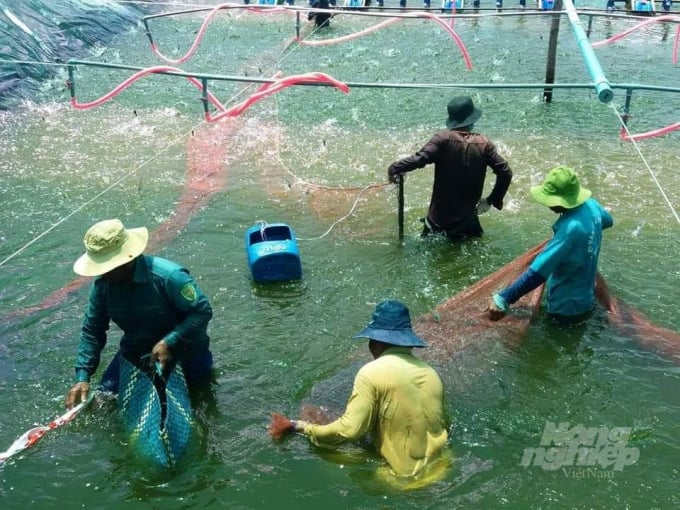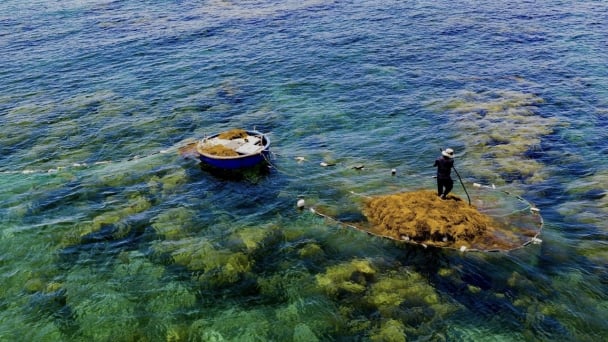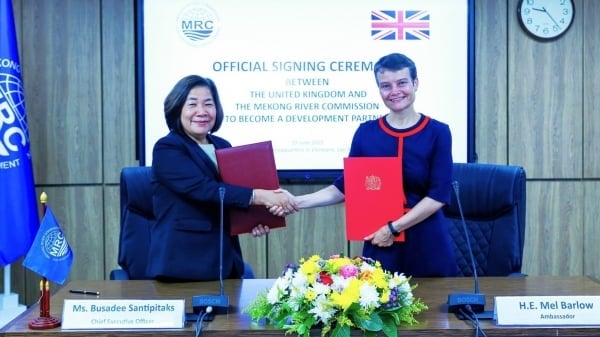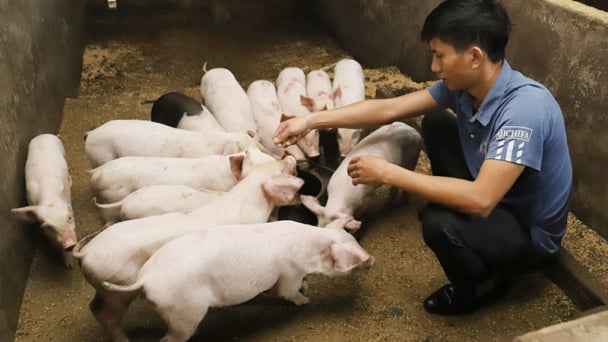June 21, 2025 | 01:36 GMT +7
June 21, 2025 | 01:36 GMT +7
Hotline: 0913.378.918
June 21, 2025 | 01:36 GMT +7
Hotline: 0913.378.918

Pham Van Thieu, Chairman of the People's Committee of Bac Lieu Province. Photo: Trong Linh.
Bac Lieu Province’s agricultural sector has reached a growth rate of 4.45 per cent, ranking first in 13 provinces and cities in the Mekong Delta this year.
Most of the economic indicators of the province this year has increased compared to the same period last year.
The province’s agricultural sector makes an important contribution to the province’s overall economic growth although at the beginning of this year, the province’s agricultural production was predicted to face many difficulties due to complicated weather, African swine fever, especially, the impact of the COVID-19 pandemic.
However, the province’s agricultural sector has been proactive in preventing diseases, drought, saltwater intrusion and regulating water to protect the land for agricultural production and the area for aquaculture.
The province has identified aquaculture as one of its key economic strengths, accounting for 58 per cent of the agricultural product structure and 21 per cent of the province's economic structure.
Therefore, it continues investing to develop the aquaculture this year. The total output of aquaculture has reached 414,400 tonnes this year, achieving 100 per cent of the targeted plan, an increase of nearly 9 per cent over the same period.
Many high-tech agricultural models have been developed in the province this year.
For example, the high-tech super-intensive shrimp farming model has showed the productivity about 10-15 times higher than the model of conventional shrimp farming.
The rice-shrimp farming model has increased year by year in terms of area, productivity and added value.
This is a sustainable development model, making the profit about 15 – 30 per cent higher than the monoculture of rice.
Also this year, the rice cultivation area is estimated to be over 191,000 hectares, reaching over 101 per cent of the assigned plan with the total output of 1,222,319 tonnes, reaching over 105 per cent of the plan.

Bac Lieu identifies that aquaculture is a key economic strength, accounting for 58 per cent of the agricultural product structure and 21 per cent of the province's economic structure. Photo: Trong Linh.
Especially, the plan to develop the two rice varieties of ST24 and ST25 has been implemented initially with positive results so far.
The province has built a model of safe rice production following an organic process. The model is set to be applied on the shrimp-rice farming system, building a brand of fragrant rice and clean shrimp.
Besides, the province has also deployed a model of intensive farming of new fragrant rice varieties of BLR 413, aiming towards the recognition and circulation of the province’s fragrant rice varieties.
Currently, the province has all 49 communes, meeting the standards of new-style rural areas. Phuoc Long District and Bac Lieu City have been recognised by Prime Minister Pham Minh Chinh to complete the task of building new-style rural areas. Gia Rai Town and Vinh Loi District have submitted to the Government for approval.
The National Target Programme on New-style Rural Area Building, initiated by the Government in 2010, sets criteria on socio-economic development, politics and defence, aiming to boost rural regions of Việt Nam.
The list of criteria includes the development of infrastructure, the improvement of production capacity, environmental protection as well as the promotion of cultural values.
The province has 68 products that are recognised as “One Commune, One Product” (OCOP) products, including 52 3-star products and 16 four-star products so far.
The province has appraised and recognised an additional of 23 OCOP products at the provincial level.
As scheduled, the province will have 91 OCOP products at the provincial level by the end of this year.
OCOP products are made from a combination of local resources, traditional culture, and advanced technology, which facilitates the development of diverse products with better quality and packaging, and the ability to trace product origin.
The One Commune-One Product programme, which was approved in May 2018, aims to develop rural economies to help realise the national goal of building new-style rural areas.
Translated by Thu Hang
![Turning wind and rain into action: [10] Advancing accessible climate services for farmers](https://t.ex-cdn.com/nongnghiepmoitruong.vn/608w/files/linhnhp/2025/06/20/1911-z6704423696987_15fd32ffc26d590d204d520c9dac6786-nongnghiep-161854.jpg)
(VAN) Not only does it help farmers 'avoid droughts and rains,' the development of agricultural climate services also enhances their ability to proactively adapt to a rapidly changing climate.

(VAN) With international assistance, the harvesting of sargassum seaweed in Quang Ngai has become increasingly regulated, thereby safeguarding marine life and ensuring the stability of coastal communities' livelihoods.

(VAN) On June 19, the United Kingdom officially became a Development Partner of the Mekong River Commission.

(VAN) Biodiversity is being threatened by traditional remedies made from wildlife. Traditional medicine and humans must change to live in harmony with nature.

(VAN) Agrifood investment and finance solutions for people and the planet.

(VAN) Microplastic contamination has become pervasive in seafood, posing unprecedented challenges for food safety and marine ecosystems.

(VAN) Proactively using vaccines, combined with transport control and enhanced surveillance, is the only viable path toward biosecure and sustainable livestock production in Vietnam.